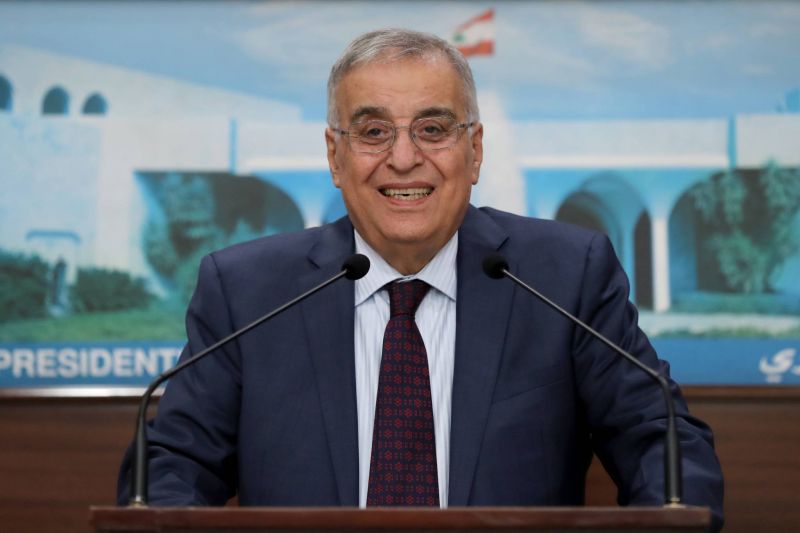
Lebanese Foreign Minister Abdallah Bou Habib. (Credit: Dalati and Nohra)
BEIRUT — Caretaker Lebanese Minister of Foreign Affairs, Abdullah Bou Habib, announced Monday that Lebanon has "concluded an agreement with the United Nations High Commissioner for Refugees [UNHCR] regarding the transmission of data related to all Syrian refugees present on Lebanese territory." The request from Beirut had been pending for several months against a backdrop of a rise in anti-Syrian rhetoric in Lebanon.
Bou Habib made the announcement following a meeting with a UNHCR delegation, the state-run National News Agency reported.
"I am pleased to announce that we have reached an agreement between Lebanon and the UNHCR regarding the submission of data for all refugees," the minister said.
"This marks the end of a long process of negotiations that began nearly a year ago," he continued. "This agreement serves the interests of both Lebanese and the UN, as well as those of donors, by preventing individuals who illegally exploit the benefits provided by the UNHCR from depriving more deserving individuals."
Bou Habib added that he believes receiving this data is Lebanon's "sovereign right," as the country has the right to know the identity of all individuals present on its territory.
Use of data
When contacted by L'Orient-Le Jour, a Lebanese diplomatic source explained that "this data will be transmitted to the Ministry of Foreign Affairs within the next three months and includes complete personal information of individuals benefiting from UNHCR's assistance."
The source specified that once received, this data will be used by General Security to "compare the names of individuals benefiting from this assistance with those of individuals crossing the border" between Lebanon and Syria, which is not allowed in order to maintain refugee status.
The source added, "99 percent of Syrian refugees present on Lebanese soil are primarily here for economic reasons, not security. According to international law, refugee status [and therefore their right to benefit from UNHCR's financial assistance] is granted to individuals who are in danger upon returning to their country, not to those who make frequent trips back and forth."
Commitment to the principle of 'non-refoulement'
UNHCR affirmed in a statement that the agreement reached between Lebanon and the organization "is in accordance with global data protection standards."
"The Lebanese Government committed not to use any data shared for purposes contrary to international law," the agency added. At the same time, Beirut has "reaffirmed its commitment to the principle of non-refoulement and its obligations under international and domestic law," UNHCR stated.
It clarified that implementation modalities are still under discussion between the two parties.
When contacted by L'Orient-Le Jour, UNHCR did not provide any details on the subject beyond those provided in its official statement.
In late April, Lebanese authorities announced a series of measures targeting Syrian refugees. The measures had been agreed during a meeting at the Grand Serail chaired by caretaker Prime Minister Najib Mikati. Among these measures, the ministers and security officials present had specifically called on UNHCR to provide Beirut with its data on the presence of Syrians in Lebanon, and urged the international community to participate in refugee care.
These decisions were made after a majority of political parties demanded the return of Syrian refugees — a call that the international community has so far refused to endorse due to the lack of a political solution to the Syrian conflict and the assessment that the security situation is not conducive to the refugees' return.


